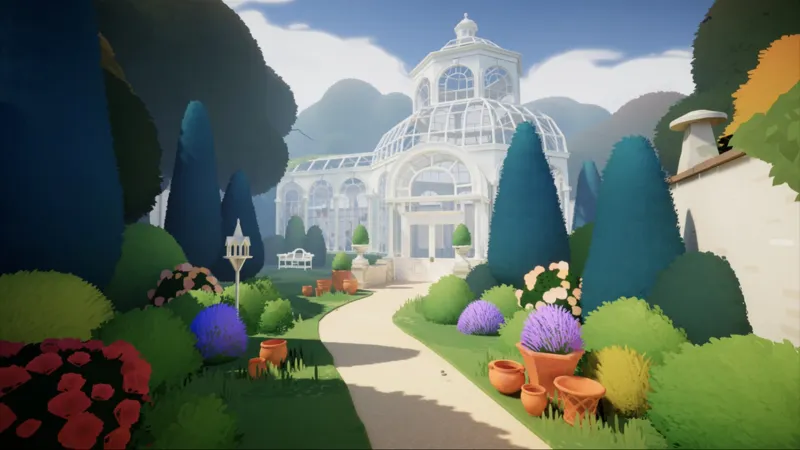
I’ve never had much of a green thumb. For years, I largely believed growing a plant required little more than burying a seed in the dirt, pouring water, and letting the sun handle the heavy lifting. Botany Manor asks players to perform those crucial first steps before challenging them to deduce the additional methods necessary to make their seedlings blossom. As I explored the beautiful grounds of a mysterious manor in search of answers, clever puzzle-solving and a serene atmosphere made these scientific exploits a delight.
Botany Manor unfolds in Victorian England circa 1890, with players controlling passionate botanist Arabella Green. She returns home to a massive 16th-century manor after a lengthy absence to finish her botany book, which requires discovering the methods to grow various flowers. A colorful, inviting presentation, combined with a relaxing ambient soundtrack with sparse, playful melodies, makes this process a joy.
[embedded content]
Getting these exotic plants to grow, such as a flower that only blooms during lightning storms or one that requires extreme heat to sprout, involves exploring rooms to find telltale clues to success. One flower may only grow in a specific temperature based on its native location; finding this info requires reading a letter from a friend tipping off the seeds’ origin while cross-referencing a chart that lists the temperatures of various regions. Nearly everything you see matters, be it a seemingly irrelevant nursery rhyme or devices like a camera or a Morse code telegraph, and connecting the dots is an entertaining exercise of creative and critical thinking. Unlocking more sections of the manor by finding keys comes at a good pace, as you don’t linger in areas for too long but stay long enough to get an intimate sense of their layout.
Increasingly elaborate exercises – such as using seeds to lure birds, opening a hidden medieval chamber, and scaling a supposedly haunted tower to open windows to create specific air currents – make each puzzle fresh and unique. I always looked forward to seeing what activities the next plant would bring, and none of them felt like duds. Whenever I got stuck (which wasn’t often), the answer was always right in front of me. I just needed to re-frame my interpretation of the information given, which led to exciting logical and imaginative epiphanies. I excitedly exclaimed, “Oh!” when I made a breakthrough several times. The reward of watching a plant grow into a parade of lilypads or snaking vines of bioluminescent bulbs is a treat.
I like that a flower’s page displays the requisite number of clues needed to solve it, which helps keep thoughts organized since you can simultaneously chip away at multiple flowers. By slotting all of the correct pieces of evidence, the game notifies players they have everything necessary to deduce the solution, cutting down guesswork. My only gripe is that you can’t inspect these clues in the menu. If you need to reexamine something, you must return to its location. While the menu thankfully displays the location of each clue, and unlocking shortcuts helps expedite trips through the manor, there can be an inconvenient amount of running around to simply re-check the wording of a document or stare at a painting again.
Scouring documents and keepsakes also reveals an overarching story of Arabella’s struggle to obtain knowledge and recognition for her chosen field in the male-dominated academic society of the time. Without uttering a word of dialogue, Botany Manor does a good job fleshing out Arabella’s personality and persistence, adding context and stakes to everything you do. The puzzles are entertaining enough, but knowing each breakthrough helps Arabella push against that glass ceiling makes them all the sweeter.
Botany Manor is a blissful, smart, and creatively conceived puzzle adventure. It’s just challenging enough to be engaging without veering into stressful territory, and its whimsical elements add fun, fantastical touches. I don’t think it made me better at gardening, but unearthing its appeal was satisfying.
